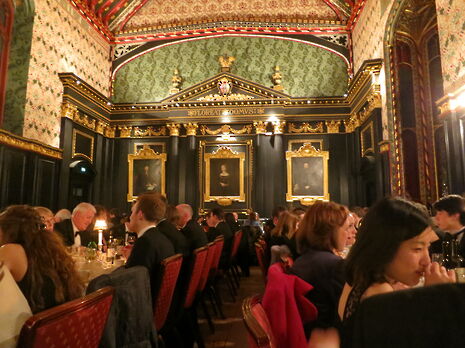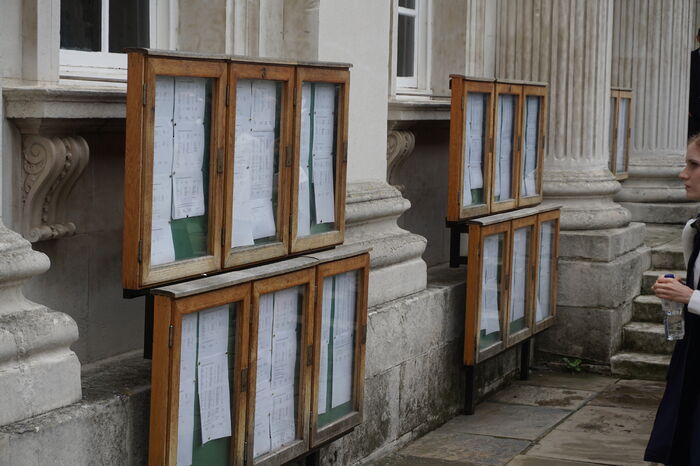Cambridge is not middle class, and it’s time we admit it
In response to the belief that Cambridge is ‘so middle-class’, Simon Percelay outlines the reasons why this idea needs to be reconsidered

As an international student well into my third year, British culture has graced me with a continuous flow of weird quirks during my time here. Beyond an odd obsession with Sunday roast and an excessive love of David Attenborough, what still unsettles me is the way in which ‘middle class’ is used to describe rich and, often, very privileged people. I have come to learn that, in the UK, the ‘upper class’ is still used to refer to those blessed with a title of nobility, or those whose wealth is to be counted with 7 digits or more. This results in a situation where being middle class is synonymous with the elite, whereas in countries where the monarchy was abolished, the phrase mostly refers to those situated in the middle of the economic hierarchy.
Of course, this overview is a gross generalisation of class structures; and it might seem odd to pick a fight with what is seemingly a nation’s linguistic habits. Where this leaves us, however, is the fact that Cambridge is often derided as ‘oh so middle class’ due to its elitist nature, and this is where the issue comes in. Whilst it is true that a majority of Cambridge students are middle class – in the sense that their sociocultural background is neither aristocratic, extremely wealthy or working class – the university itself is not. There is nothing especially middle-class about being served by waiters of a similar age in century-old halls while wearing a gown, or spending around £150 for an 8-hour party, in which all guests will be required to wear black tie. Through traditions, receptions, career prospects, alumni networks, and new methods of socialising, the university encourages its students to go through a process of social ascension, preparing many of them to join the elite of society.
“This situation distorts perceptions of access efforts”
It is hard to deny that Cambridge is inherently upper-class as an institution: with many colleges founded by members of the royal family, the university was set up by, and for, nobles and clergymen. A good example is the consecutive foundation of Eton in 1440 and King’s College in 1441 by Henry VI: members of King’s were to be recruited exclusively from Eton, and undergraduates at King’s did not even have to pass exams to achieve their BA degree. The latter privilege was only abolished in 1851, and the former in 1861. While access was the least of the university’s worries at the time, these dispositions show how distant the origins of Cambridge were from those with non-aristocratic backgrounds, let alone working-class students. This is not simply an issue of the past – in 2009, The Economist wrote that Oxford and Cambridge admitted more Etonians each year than applicants from the whole country who qualify for free school meals.
This situation distorts perceptions of access efforts: if the institution was created by and for upper-class individuals, then widening entry to the middle class will already be seen as an improvement. Middle-class students are not the people the university was made for, but they are the ones it accepts. The upper-class nature of Cambridge and its traditions is legitimised by the very fact that they are deliberately inclusive of middle-class individuals, much in the same way that multiple aristocratic traditions – such as life peerages – have been maintained because they are now awarded on the basis of ‘merit’.
Calling Cambridge middle-class also affects the way students perceive their own social status. For instance, I am a white middle-class European student, coming from a family mainly consisting of secondary school teachers. I have never really faced any major financial hardship in my life, and I have grown up in a fairly privileged environment, yet am still quite far off from being rich. Before coming to Cambridge, I had never heard of black tie, nor had multiple generations of my family previously studied here. Being at St John’s, I have – naturally – met upper-class people and those much wealthier than me; individuals that naturally belonged there, unlike me. Seeing this whole, originally foreign world of Cambridge traditions labelled as ‘middle-class’ could easily lead me to conceive of myself as under-privileged, or at least more deserving of being here.
Ultimately, it is important to be more critical of our perception of social status beyond the context of Cambridge, lest we become disillusioned by the supposedly middle-class nature of the institution
 News / Report suggests Cambridge the hardest place to get a first in the country23 January 2026
News / Report suggests Cambridge the hardest place to get a first in the country23 January 2026 News / Reform candidate retracts claim of being Cambridge alum 26 January 2026
News / Reform candidate retracts claim of being Cambridge alum 26 January 2026 News / Cambridge ranks in the top ten for every subject area in 202623 January 2026
News / Cambridge ranks in the top ten for every subject area in 202623 January 2026 Interviews / Lord Leggatt on becoming a Supreme Court Justice21 January 2026
Interviews / Lord Leggatt on becoming a Supreme Court Justice21 January 2026 Comment / Cambridge has already become complacent on class23 January 2026
Comment / Cambridge has already become complacent on class23 January 2026










